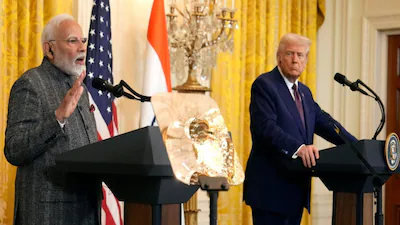India has temporarily stopped most of its postal services to the United States, a move linked to Washington’s recent tariff decisions under President Donald Trump’s administration. The halt, effective August 25, 2025, reflects growing trade friction and logistical challenges between the two countries.
Why India Halted Shipments
The suspension follows the U.S. government’s decision to scrap the “de minimis” duty-free exemption, which earlier allowed imports worth up to $800 to enter without tariffs. With the new rules, almost all parcels headed to the U.S. will attract customs duties, regardless of value.
India’s postal authorities say the sudden shift created confusion and operational risks. Carriers were given little time to prepare, and clarity on compliance mechanisms—such as identifying who will collect duties and remit them to U.S. Customs—remains absent.
What Services Are Still Allowed
Despite the wide halt, not everything has been stopped. India Post confirmed that letters, documents, and gifts valued below $100 will still be accepted for delivery to the U.S. All other parcels, merchandise, and larger consignments are temporarily suspended until further clarity is available from U.S. customs officials.
Refunds and Customer Relief
Customers who have already posted parcels now barred by the new rules can claim refunds for their postage. India Post expressed regret for the inconvenience, assuring that discussions with the U.S. Postal Service and other stakeholders are ongoing to resume services at the earliest.
Fallout for Businesses and Consumers
The sudden halt has alarmed small exporters, e-commerce sellers, and individuals who rely on affordable postal channels to ship goods to the U.S. Analysts say the disruption could impact India’s online retail sector, which depends heavily on cross-border buyers in America.
Many small traders fear higher costs as they may be forced to shift to private courier firms that charge significantly more than postal services.
Broader Trade Tensions
The postal freeze is the latest flashpoint in rising U.S.–India trade tensions. Earlier this month, the Trump administration imposed a 50% tariff on Indian imports of Russian crude oil, drawing strong protests from New Delhi. Indian officials described the move as “unreasonable,” insisting the country needs to diversify its energy supplies.
With tariffs tightening and postal services disrupted, relations between the two nations face increasing strain, risking setbacks in both commerce and diplomacy.
What Lies Ahead
- Talks in Progress – India Post and U.S. agencies are in communication to smoothen compliance processes.
- Unclear Timelines – Until duty collection systems are properly defined, postal services are likely to remain limited.
- Uncertain Impact – The longer the halt continues, the greater the impact on small businesses and bilateral trade.
Conclusion
India’s decision to suspend postal services to the United States underlines how tariff hikes and policy shifts can ripple into everyday trade and communication. While documents and low-value gifts are still permitted, the suspension of parcels has already begun to affect businesses and consumers. Unless both sides reach a practical arrangement soon, this disruption could deepen existing trade tensions.





More Stories
Despite Millions Spent, Delhi’s Cloud-Seeding Trial Yields No Rain
Raped, Silenced, and Pushed to the Edge: Young Doctor’s Final Note Names MP and Police Officials
Voter List Fraud: ₹80 Offered for Each Fake Deletion Request in Aland, Karnataka SIT Reveals